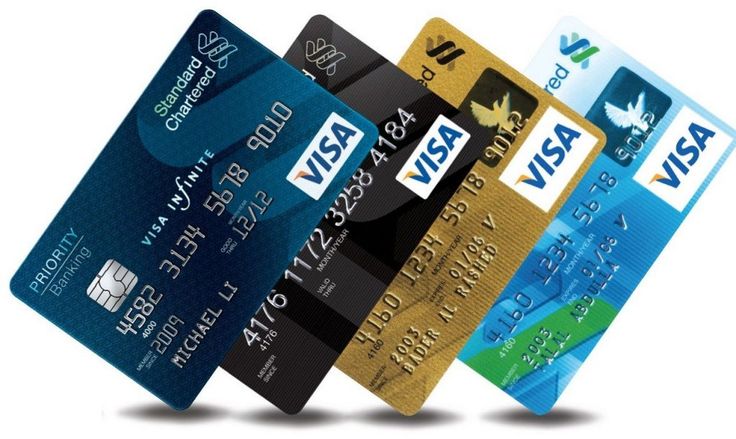In today’s fast-paced financial world, Credit Cards UK continue to be a vital tool for everyday purchases, credit building, emergency expenses, and reward earning. Whether you’re looking for a low-interest card, a balance transfer offer, or premium rewards, the UK credit card market offers a wide variety of choices to suit all financial needs.
This comprehensive guide for 2025 explains everything you need to know about credit cards in the UK, including how they work, the different types available, how to compare offers, how to use them wisely, and the best credit card providers currently on the market.
What Is a Credit Card?
A credit card is a financial product issued by banks or financial institutions that allows you to borrow money up to a pre-set limit to pay for goods or services. You repay the amount either in full or over time with interest.
Key Features:
- Pre-approved credit limit
- Interest charges on unpaid balances
- Monthly repayment obligations
- Rewards or cashback (depending on the card type)
- Potential to improve or damage your credit score

Types of Credit Cards Available in the UK
The UK credit card market caters to various financial needs. Here are the most common types of credit cards available in 2025:
1. 0% Purchase Credit Cards
These cards allow you to make purchases without paying interest for an introductory period (often between 6 to 24 months).
Best for: Large purchases that you want to pay off gradually without incurring interest.
2. Balance Transfer Credit Cards
Transfer existing credit card debt to a new card with 0% interest for a set period, usually 12 to 30 months.
Best for: Paying off existing credit card debt more affordably.
3. Reward and Cashback Credit Cards
Earn points, air miles, or cashback for every pound spent.
Best for: Everyday spending and earning value in return.
4. Credit Builder Cards
Designed for people with poor or no credit history. They have lower limits and higher interest rates but can help improve credit ratings.
Best for: First-time users or those rebuilding credit.
5. Travel Credit Cards
These cards offer benefits like no foreign transaction fees, travel insurance, or air miles.
Best for: Frequent travellers and holidaymakers.
6. Premium Credit Cards
Come with exclusive benefits like concierge services, lounge access, and higher reward rates. Often have annual fees.
Best for: High earners and luxury spenders.
How to Apply for a Credit Card in the UK
Step 1: Check Your Credit Score
Use free services like Experian, Equifax, or TransUnion to check your credit report.
Step 2: Compare Cards
Use comparison tools like MoneySuperMarket, Compare The Market, or MoneySavingExpert to compare features and eligibility.
Step 3: Use Eligibility Checkers
Soft search tools let you see your chances of approval without affecting your credit score.
Step 4: Submit an Application
Provide your personal details, employment information, and income.
Step 5: Await Approval
Decisions are usually instant, but some applications may take a few days for manual review.
Factors to Consider When Choosing a Credit Card UK
- Interest Rates (APR): Lower APR means lower cost for carried-over balances
- Introductory Offers: 0% interest deals or bonus rewards
- Annual Fees: Some cards charge yearly fees for premium features
- Credit Limit: The maximum amount you can borrow
- Rewards/Cashback Rates: Ensure rewards match your spending habits
- Eligibility Criteria: Credit score requirements, age, and income
How Credit Cards Impact Your Credit Score
Using credit cards responsibly can boost your credit score, while misuse can damage it.
Positive Impacts:
- Regular payments build trust
- Keeping balances low relative to your limit helps credit utilisation ratio
- Long-term card usage shows credit stability
Negative Impacts:
- Late or missed payments
- Maxing out your limit
- Applying for too many cards in a short time
Responsible Credit Card Usage Tips
- Always pay at least the minimum amount due
- Try to pay off the full balance each month to avoid interest
- Set up a direct debit to avoid missing payments
- Monitor your spending with mobile banking apps
- Avoid cash withdrawals which often carry high interest

Best Credit Cards UK (2025)
1. Barclaycard Platinum Balance Transfer
- 0% interest on balance transfers for up to 30 months
- No interest on purchases for 6 months
- Balance transfer fee applies
2. American Express Platinum Cashback Everyday
- Up to 5% cashback in the first 3 months (limits apply)
- No annual fee
- Monthly repayments required
3. Tesco Bank Purchases Card
- 0% interest on purchases for up to 18 months
- Collect Tesco Clubcard points on spending
- No balance transfer fee
4. Aqua Classic Credit Card
- Designed for building credit
- Credit limits from £250 to £1,200
- Free text reminders and account access via app
5. Virgin Money Travel Credit Card
- No fees on overseas transactions
- Competitive interest rate
- Useful for regular international use
Pros and Cons of Credit Cards
Pros:
- Convenient and widely accepted
- Spread cost of large purchases
- Improve credit score
- Emergency spending
- Purchase protection under Section 75
Cons:
- High interest if not repaid in full
- Risk of debt spiral
- Temptation to overspend
- Fees and charges for missed payments
Legal Protections for UK Credit Card Users
Section 75 of the Consumer Credit Act
If you buy goods or services costing between £100 and £30,000 with a credit card, the card provider is equally liable for any breach of contract or misrepresentation.
Financial Conduct Authority (FCA) Regulations
All UK credit card providers are regulated by the FCA, ensuring fair treatment and clear communication to customers.
Credit Card Fraud and How to Prevent It
Common Fraud Types:
- Card cloning
- Phishing emails or fake websites
- Lost or stolen cards
Prevention Tips:
- Regularly check statements for suspicious transactions
- Report lost cards immediately
- Never share your PIN or card details over email
- Use secure websites (https://) when shopping online
Alternatives to Credit Cards in the UK
- Debit Cards: Directly linked to your bank account
- Buy Now, Pay Later Services: Like Klarna or Clearpay (beware of late fees)
- Personal Loans: Better for long-term borrowing
- Overdrafts: Useful for short-term needs but often high-interest
FAQs About Credit Cards UK
Can I get a credit card with bad credit?
Yes, credit builder cards are available for people with poor credit. These come with lower limits and higher interest rates but can help rebuild your score.
Is there a limit to how many credit cards I can have?
No set limit, but having too many can affect your credit score and make it harder to manage repayments.
What happens if I miss a payment?
You may incur a late payment fee, lose any promotional rates, and harm your credit score.
Can I cancel a credit card anytime?
Yes, but ensure the balance is fully paid. Cancelling may slightly impact your credit score.
Is a credit card safer than a debit card?
Yes, due to Section 75 protection and fraud liability rules.
Future Trends in UK Credit Card Market (2025 Outlook)
- AI-based Fraud Detection: Smarter systems to combat fraud
- Digital Wallet Integration: Cards used via Apple Pay, Google Pay
- Flexible Repayment Plans: More providers offering customised repayments
- Green Credit Cards: Eco-conscious consumers rewarded with sustainable incentives
- Open Banking Features: Deeper insights into spending habits and affordability checks

Conclusion
Selecting the right Credit Card UK in 2025 requires a clear understanding of your financial habits, goals, and credit profile. With numerous options available, from reward-rich to interest-free and credit-building cards, there is a solution for nearly every type of borrower.
Use comparison tools, stay informed about your credit score, and always read the fine print. When used responsibly, credit cards are not just a borrowing tool but a powerful asset in your personal financial strategy.
